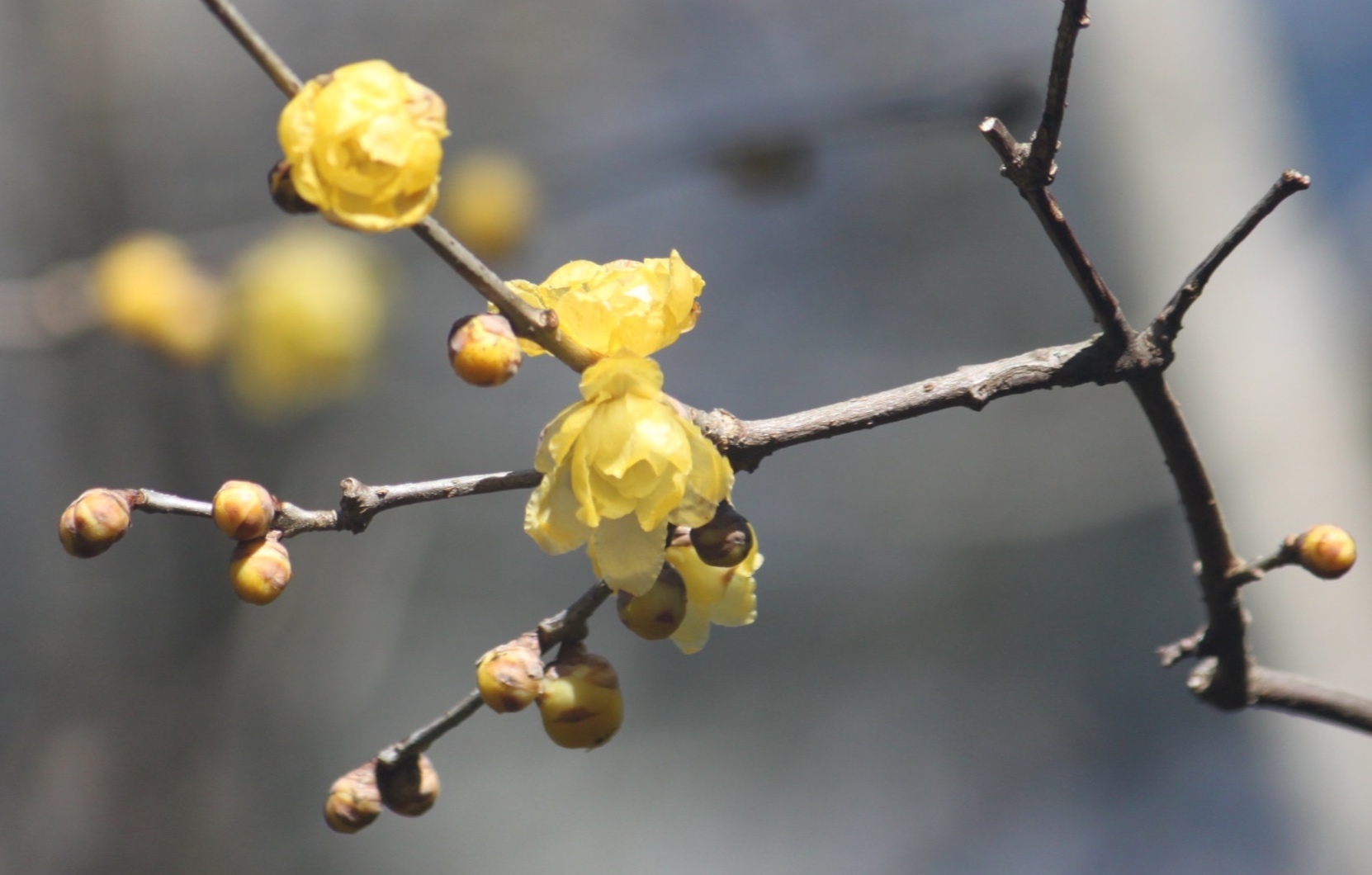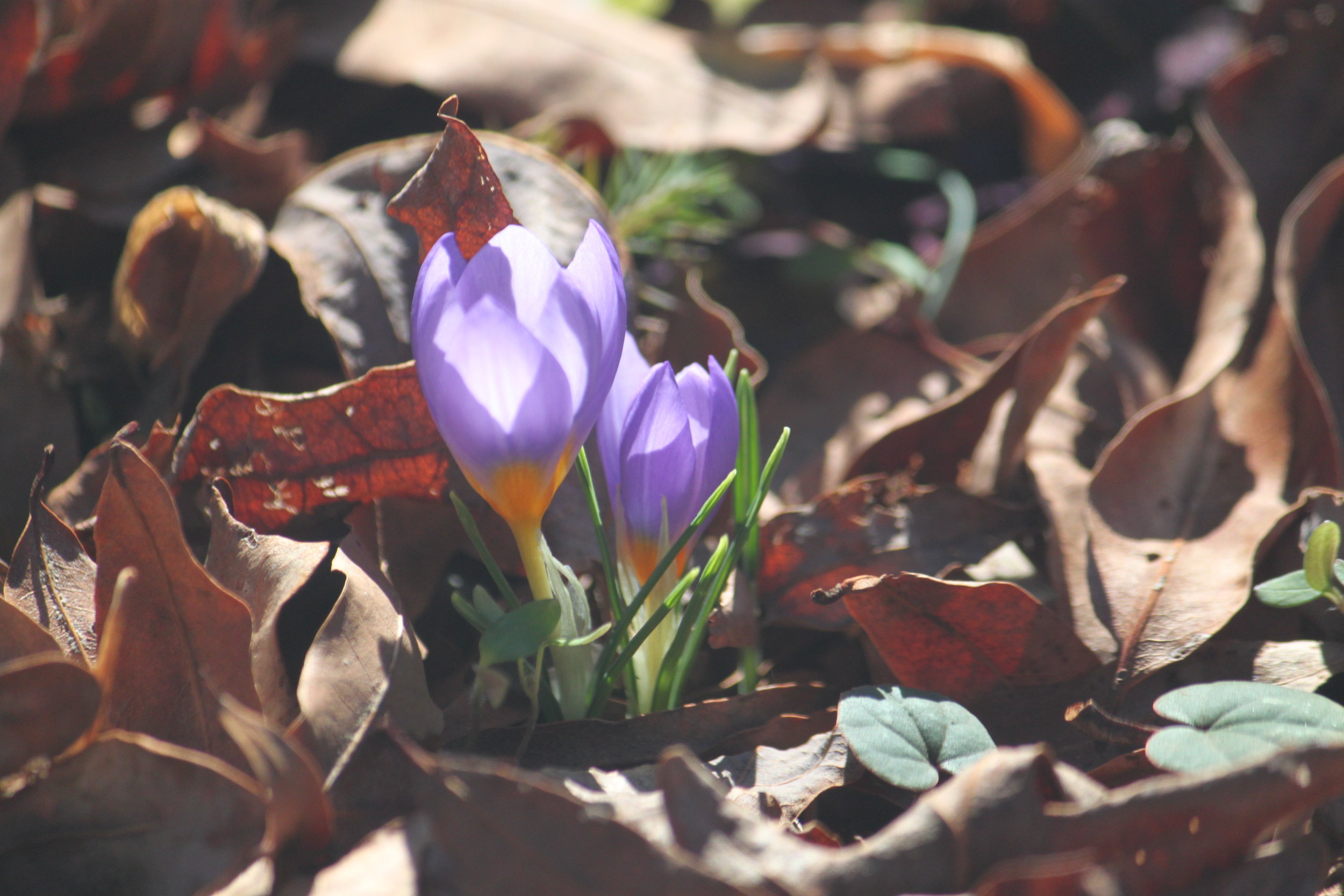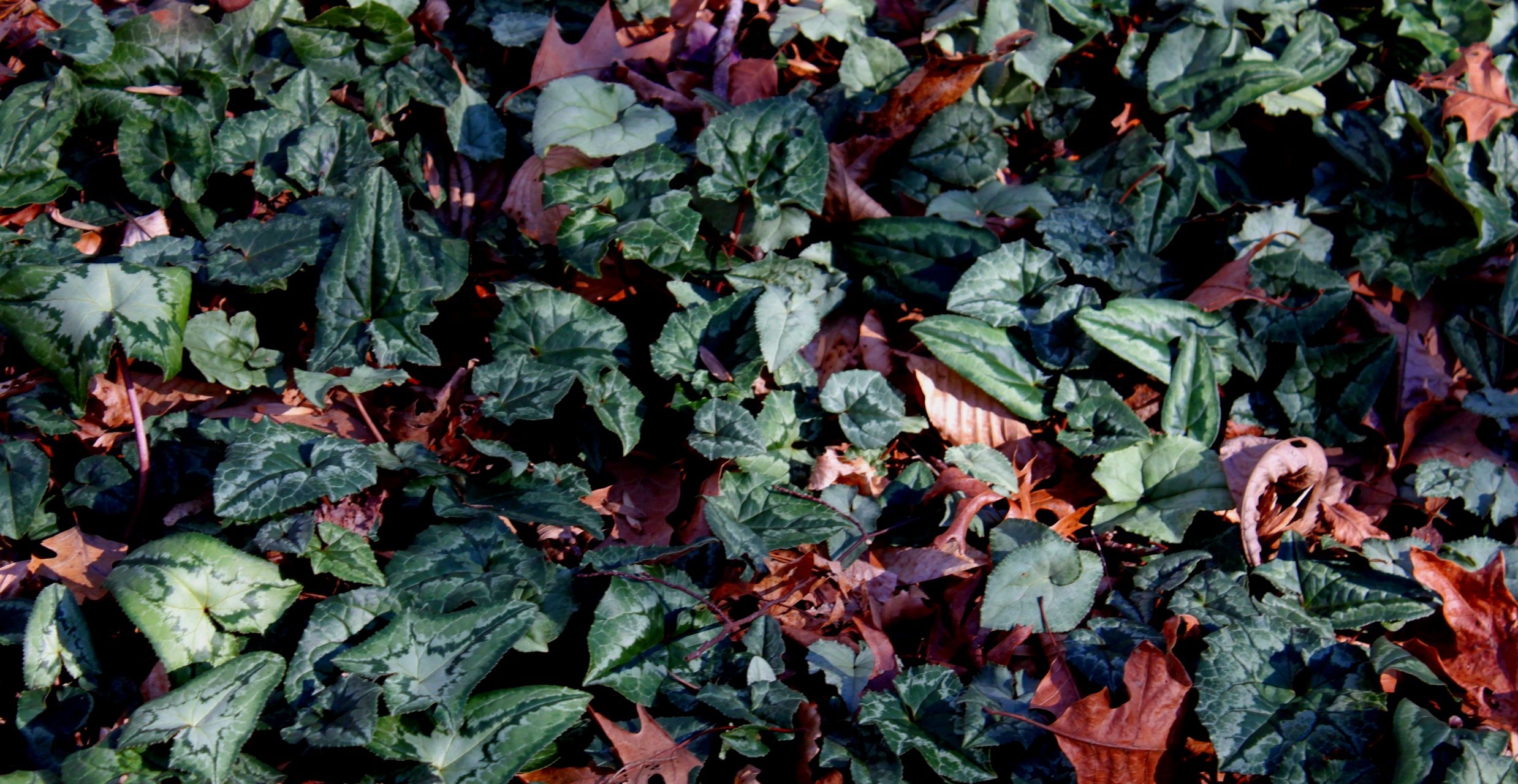Early Winter
Chimonanthus praecox
X Sycoparrotia semidecidua
Christmas was a lovely, cold day and I spent it listing the flowers in bloom. I had anticipated the day and kept an eye out for promising buds but when the day came, I found fewer open flowers than usual. The daffodils which had bloomed earlier, were droopy because of recent freezes; most of the white quinces had promising fat, white buds, but without a stamen in sight. It was especially disappointing not to find a single Christmas rose—not a hellebore or a rose. The disappointment of that day was quickly forgotten as more and more hellebores opened their flowers in the next few days. More cyclamen and narcissus bloomed and the fragrance of Chimonanthus praecox filled the air along the driveway and along the mother-in-law walk. X Sycoparrotia semidecidua lives up to its name with yellow leaves and swollen flower buds along its branches. The parrotia parent gives last year’s leaves their bright yellow color and early winter endurance. Galanthus plicatus‘ Three Ships’ made its proper statement on Christmas day and more and more snowdrops bloom now with Galanthus gracilis filling an area in Stubble Field, hybrids growing south of the large planting of G. elwesii var. monostictus and several large groups of G. elwesii Edward Whittall Group almost at its peak.
Helleborus niger
Last week we began cutting back the hellebore leaves from last year. When the flower stalk is taller than the old leaves, I believe they no longer give the flower buds any protection and there are several reasons why we believe it is best to cut off old leaves. They may harbor fungus, which can remain viable in the soil and affect additional plants. The leaves hide some of the flowers as the stems lengthen and may smother many small plants, such as aconites, anemones, and cyclamen that bloom at the same time. Aconites and Crocus sieberi opened last week–more than 2 weeks later than usual.
Crocus sieberi
We began clearing the sections of the woods where we left off last winter and removed fallen sticks and branches, dug ivy, periwinkle, honeysuckle, small and unwanted trees, and removed some hybrid hellebores and epimediums. Part of the challenge of gardening is to recognize when desirable plants outgrow their designated places. Some hybrid hellebores and the matting forms of epimediums can produce a controlled area where nothing else can grow, but they are too great a challenge for cyclamen and other less vigorous plants. We love this season and spend every minute we can searching for flowers, planning for next year, and, of course, we have another group of snowdrops to divide and plant in a new area.
Cyclamen hederifolium foliage
Christmas List 2018
Berries or Fruit:
Berberis thunbergii
Danae racemosa
Hedera helix ‘Poetica Arborea’
Ilex cornuta
Ilex decidua ‘Pocahontas’, ‘Finch’s Yellow’, seedlings
Ilex opaca
Ilex opaca ‘Carolina Cardinal’
Ilex vomitoria
Liriope muscari, black berries
Nandina domestica, yellow and red berried forms
Poncirus trifoliata ‘Flying Dragon’
Rohdea japonica
Symphoricarpos orbiculata
Flowers:
Camellias, mostly unidentified C. japonica
Chaenomeles ‘Crimson and Gold’, ‘Chojubai’
Chimonanthus praecox
Chrysanthemum ‘Golden Lida Thomas’
Crocus laevigatus
Crocus tournefortii
Cyclamen cilicium
Cyclamen coum
Cyclamen hederifolium
Enemion biternatum
Erica carnea, pink
Galanthus elwesii “Sandra Lutz”
Galanthus elwesii var. monostictus
Galanthus plicatus ‘Three Ships’
Helleborus niger
Helleborus niger x argutifolius (H. x nigercors)
Helleborus x hybridus
Helleborus x sternii
Jasminum nudiflorum
Knautia arvensis
Loropetalum chinensis
Mahonia unnamed seedling
Mahonia x media ‘Charity’
Mahonia x media ‘Lionel Fortescue’
Mahonia x media ‘Winter Sun’
Prunus subhirtella ‘Autumnalis’
Ranunculus repens
Rudbeckia triloba
Sarcococca confusa
Spiraea thunbergii
Spiraea thunbergii ‘Ogon’
Spiraea thunbergii ‘Rosea’
Verbena canadensis white, purple
Viburnum plicatum f. tomentosum ‘Summer Snowflake’
Viburnum tinus
Viola striata




